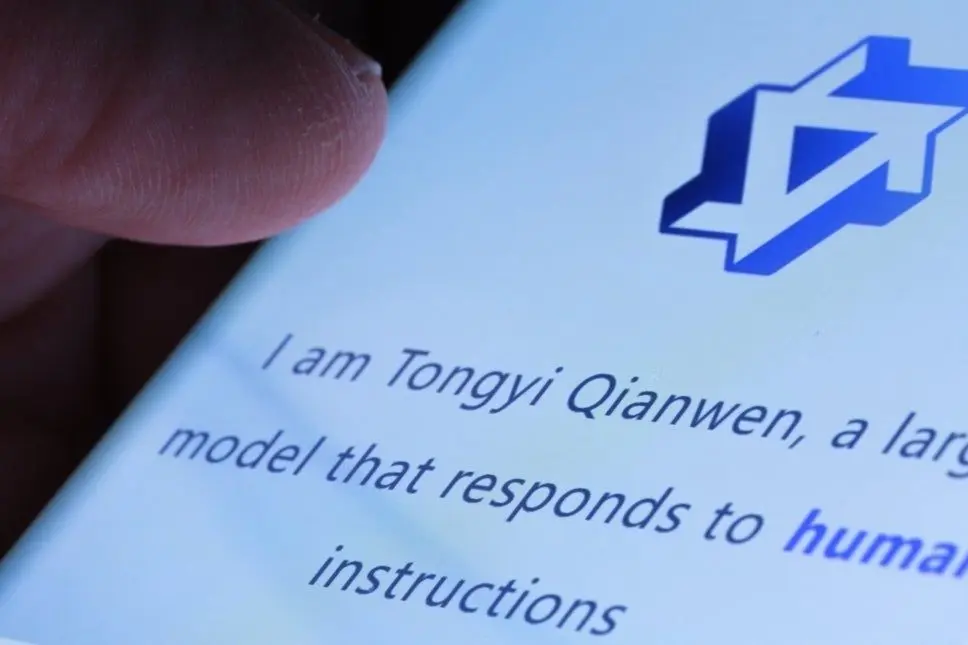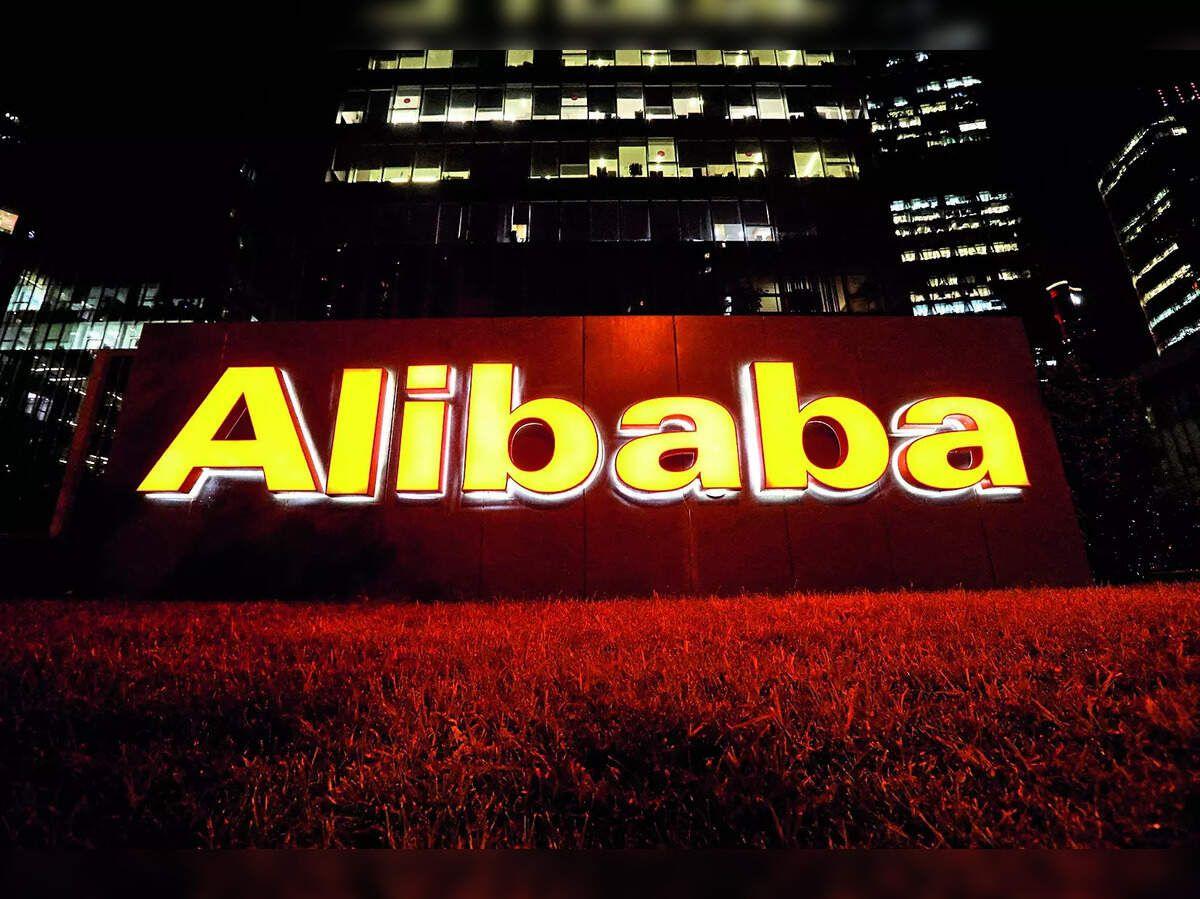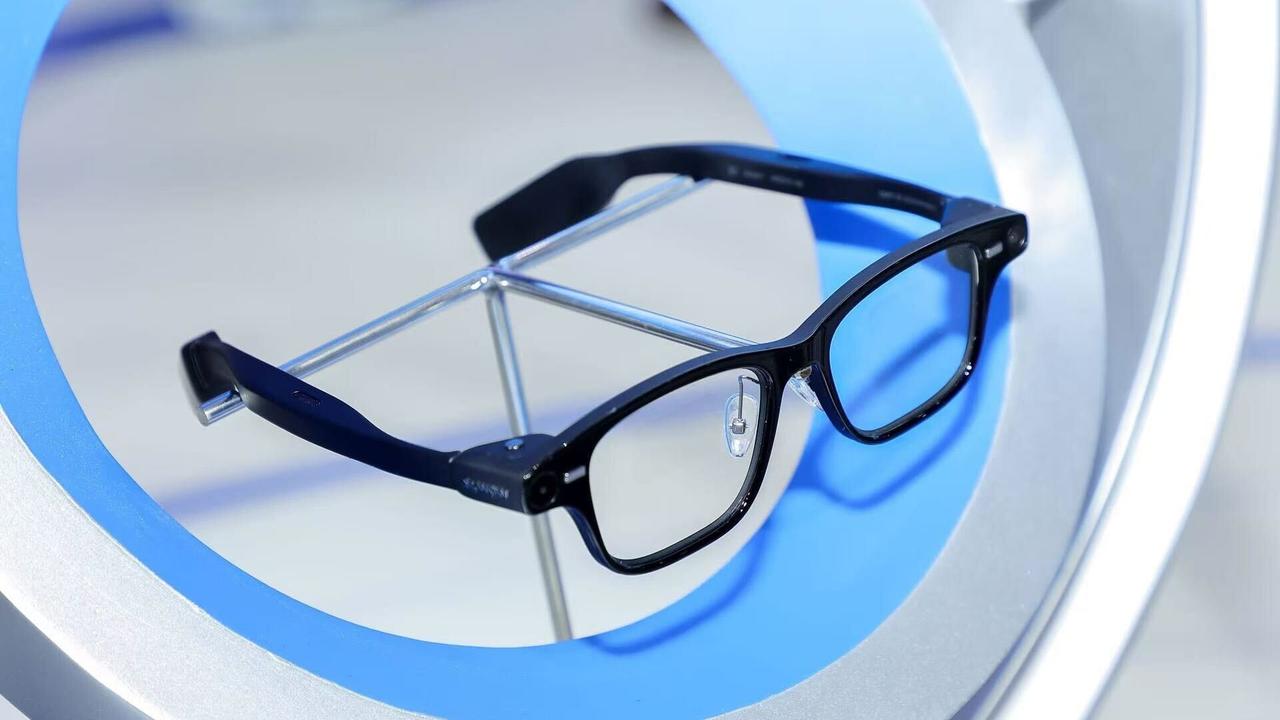Alibaba Enters Smart Glasses Market with AI-Powered Quark Glasses and Chatbot
5 Sources
5 Sources
[1]
Alibaba's new smart glasses take on Meta Ray-Bans - here's what they offer
Alibaba's new smart glasses are now available for preorder.The Quark AI glasses cost $659 and are available in China.They are Alibaba's first consumer-facing AI product. Another company is throwing a pair of smart glasses into the ring. Chinese tech giant Alibaba unveiled its first smart glasses, the Quark AI Glasses, in July, and they are officially on pre-sale starting today, Oct. 24. Could they be Meta Ray-Bans' newest rival? The AI-infused glasses are powered by the company's Qwen large language model, which already has over 400 million downloads and 140,000 derivative downloads, Alibaba wrote in a press release at the time. Also: Missed out on Meta Ray-Ban Display? Verizon is selling the smart glasses now, but act fast The glasses integrate with Alibaba's ecosystem of services, including navigation through Amap, payments through Alipay, price comparisons through Taobao, and travel bookings through Fliggy. Like other smart glasses, the Quark AI Glasses support calls, music streaming, and language translation. Alongside the preorder announcement on Thursday, Alibaba also launched a new AI Chat Assistant within the Quark app. Users can query the assistant for conversations, ask questions, and more. The pre-sale launch of the smart glasses is now live in Asia, and interested customers can buy them through Tmall for 4,699 yuan ($659). Orders will ship in December, according to Alibaba. Also: I tested the Oakley Meta Vanguard on a 5-mile walk - here's how it beat my Ray-Bans Alibaba's Quark AI smart glasses are the company's first attempt to develop a consumer-facing AI product, as most of Alibaba's products are made for businesses. They also represent a growing trend among tech companies to develop their own smart glasses. According to Markets and Markets, industry analysts expect the smart glasses market to grow by 29.4% from 2024 to 2030, hitting a predicted valuation of $4,129.3 million. AI is powering these innovations, alongside advancements in eye and gesture tracking, AR and MR, and growing adoption, those analysts determined. Want more stories about AI? Sign up for our weekly AI Leaderboard newsletter. Meta has seen a successful run of its smart glasses so far, with sales of its Ray-Bans tripling over the year, according to EssilorLuxottica. Earlier this month, Meta unveiled a new lineup of smart glasses at Meta Connect, including the second-generation Meta Ray-Bans, Meta Oakley Vanguard, and Meta Display.
[2]
Chinese rivals to Meta's AI glasses are piling up. How Goldman is playing the trend
With Meta Platforms proving there's demand for well-designed smart glasses, Alibaba has become the latest Chinese company rushing to sell its own version. "Continuous" launches of glasses with artificial intelligence or augmented reality (AR) features, including upgrades by Meta itself, should benefit the supply chain based in Greater China, Goldman Sachs analysts said this month. While the Ray-Ban Meta glasses aren't officially available in China, they use components made by suppliers based there. And, in an indication of widespread appeal, different third-party merchants sell the glasses online in China. Just in time for the Singles Day shopping event , Alibaba on Friday began presales in China of its own Quark AI Glasses at $660 -- or as low as $519 for its e-commerce platform members -- with deliveries set to start in December . Alibaba said the glasses will offer hands-free calling, music streaming, real-time language translation and meeting transcription based on Alibaba's Qwen AI model. The launch comes after Xiaomi last summer started selling smart glasses in China that let users tap the frame to change the lens tint. Meizu, HTC and startup INMO have debuted AI glasses in the last three months, while Chinese startup RayNeo and ByteDance are both expected to release their versions in the next few months, the Goldman analysts said. "We expect the longer battery life to enhance the practicality of AI/AR glasses, along with powerful AI features focusing on interaction with real subjects, attracting more potential customers and driving their willingness to buy," the analysts said. Goldman said more than 3 million units of Ray-Ban Meta's second-generation AI glasses have been sold in less than two years. Here are Goldman's buy-rated mainland China and Hong Kong-listed component suppliers to play the smart glasses trend: OmniVision -- One of the key improvements in smart glasses is display, the Goldman analysts said. Shanghai-listed OmniVision makes the liquid crystal on silicon, or LCoS, that powers the Meta Ray-Ban Display, Goldman's analysts said. The material costs less and has higher color purity than earlier Micro LED and Micro OLED technologies, they added. Lingyi -- The Shenzhen-listed maker of precision parts has about 15% revenue exposure to the AI/AR glasses supply chain, according to Goldman. In 2024, Lingyi posted 4.04 billion yuan ($570 million) in revenue tied to AI and extended reality (XR) wearables, up more than 40% from the year before. Lingyi says its customers include Xreal, a Chinese startup selling augmented reality glasses. AAC -- The Hong Kong-listed company makes a range of sensors and slim speakers used in consumer electronics -- resulting in about 5% exposure to the AI/AR glasses supply chain, according to Goldman. In the first half of the year, AAC said its acoustics business generated revenue of 3.52 billion yuan , about 2% more than the year before. "Several artificial intelligence glasses adopted the Group's ultra-thin speakers," AAC said in an interim report at the time. -- CNBC's Michael Bloom contributed to this report.
[3]
Alibaba prices AI glasses at $660 to rival Meta and launches ChatGPT challenger
Alibaba announced plans to release a pair of smart glasses powered by its AI models. The Quark AI Glasses are Alibaba's first foray into the smart glasses product category. Alibaba on Thursday announced pricing for its upcoming artificial intelligence glasses and launched a new chatbot powered by its latest AI models. The Chinese technology giant said the Quark AI Glasses will go on pre-sale on Oct. 24 on Alibaba's e-commerce platform Tmall. The pre-sale price will start at 4,699 Chinese yuan ($659.4) but after applying various discounts, will cost 3,999 yuan. Alibaba will begin shipping the product from December. The Hangzhou-headquartered firm also unveiled AI Chat Assistant, a new chatbot mode within its existing Quark app. The latest moves are part of Alibaba's aggressive AI push this year which has seen the company release updated models and a drive to reinvigorate sales at its cloud computing business through which it sells much of this technology to businesses. But the glasses and chatbot product highlight an increasing area of focus for Alibaba -- AI that is aimed at consumers. Alibaba's shares closed nearly 1.7% higher in Hong Kong and its U.S.-listed stock also rose in premarket trade.
[4]
Alibaba launches AI chatbot service in renewed consumer push - The Economic Times
Alibaba has introduced a new AI chatbot within its Quark app, aiming to boost its consumer reach in China's crowded AI market. Using its Qwen3 models, the tool offers text and voice chat features. Alibaba also announced pre-sales of its Quark AI smart glasses, priced at $659.69.Alibaba launched a new AI chatbot assistant service on Thursday, refreshing its push into a consumer-facing space that is dominated by ByteDance and Tencent. The Chinese ecommerce firm integrated the chat assistant into its Quark app, a platform that began as a browser but has been repositioned this year as Alibaba's flagship consumer application, with added artificial intelligence functions including search capabilities. The new service, which is free to use, allows people to access a chatbot interface for conversations via text or voice, providing real-time information and services, the company said in a statement. Alibaba's AI efforts have focused largely on enterprise clients through its cloud services division. The latest move is another attempt to capture consumers in a market where the company has struggled to gain traction with its Tongyi AI assistant app. Despite being among the first Chinese companies to release a consumer AI assistant app to the public in late 2023, Tongyi has failed to achieve widespread adoption. The app had 6.96 million monthly active users in September, according to AI product tracker Aicpb.com. Market leader ByteDance's Doubao had 150 million monthly active users, while DeepSeek had 73.4 million and Tencent followed with 64.2 million. Globally, AI assistants have been gaining traction for companies like Google, Microsoft and OpenAI, who have embedded them into their Gemini, Copilot and ChatGPT platforms. Powered by Alibaba's latest Qwen3 models, Quark's AI chat assistant offers enhanced reasoning, understanding and execution capabilities, the company said. Separately on Thursday, Alibaba said pre-sales for its Quark AI Glasses would begin at midnight on Friday on its Tmall e-commerce platform. The company said it would begin fulfilling orders progressively from December, with the glasses priced at 4,699 yuan ($659.69). Alibaba unveiled its smart glasses in July, joining companies like Meta Platforms in the market for wearable AI devices. ($1 = 7.1230 Chinese yuan)
[5]
Alibaba Unveils New AI Chatbot For ChatGPT Like AI Push - Alibaba Gr Hldgs (NYSE:BABA)
Alibaba Group Holding Limited (NYSE:BABA) stock rose on Thursday after the company announced the launch of a new artificial intelligence chatbot assistant. The Chinese e-commerce juggernaut integrated the new chat assistant directly into its Quark app. Alibaba is strategically repositioning Quark from a simple web browser into its flagship consumer application, enhancing it with AI functions like advanced search capabilities, Reuters reported on Thursday. Also Read: Alibaba Unveils Next-Gen AI Models To Rival GPT-5 Alibaba stock gained 96% year-to-date as its cloud unit and AI models gain traction. However, Alibaba has struggled to win market share in the consumer AI space. The company's previous standalone AI app, Tongyi, failed to gain traction. To put this in perspective, data from September shows Tongyi had roughly 7 million monthly active users. In comparison, market leader ByteDance's Doubao has 150 million users, and the tens of millions using assistants from competitors like DeepSeek and Tencent Holding Ltd (OTC:TCEHY). Alibaba says the new Quark assistant, powered by its latest Qwen3 AI models, offers users superior reasoning and conversational abilities. Aliababa's AI Push Alibaba will also begin pre-sales for its Quark AI Glasses this week. Priced at around $660, the wearable device positions Alibaba to compete against companies like Meta Platforms Inc. (NASDAQ:META) in the emerging market for smart glasses. Analysts see significant growth ahead for Alibaba, pointing to a convergence of powerful catalysts. Recently, Goldman Sachs analysts identified Alibaba's overseas expansion as a primary driver, fueled by China's cost advantages and supply chain strength. The firm forecasted robust growth in Alibaba's cloud division, projecting revenue to climb 31% to 38% through fiscal 2028. Other firms echo this optimism. Daiwa Securities forecasted 30% cloud revenue growth for the second quarter of fiscal 2026. Similarly, China International Capital Corporation (CICC) anticipates 30% cloud growth for the same period. Price Action: Alibaba shares were up 1.63% at $168.56 during premarket trading on Thursday, according to Benzinga Pro data. Read Next: Is A 'Critical Software' Ban On China Next? Trump Weighs New Sanctions Photo by Ascannio via Shutterstock BABAAlibaba Group Holding Ltd$168.561.63%OverviewMETAMeta Platforms Inc$730.95-0.34%TCEHYTencent Holdings Ltd$79.82-0.16%Market News and Data brought to you by Benzinga APIs
Share
Share
Copy Link
Alibaba launches Quark AI Glasses and a new AI chatbot, marking its entry into the consumer AI market. The move positions the company to compete with Meta and other tech giants in the growing smart glasses sector.
Alibaba's Entry into Smart Glasses Market
Chinese tech giant Alibaba has made a significant move into the consumer AI market with the launch of its Quark AI Glasses. Priced at 4,699 yuan ($659), the glasses are now available for preorder in China, with shipments expected to begin in December
1
2
. This marks Alibaba's first foray into the smart glasses product category, positioning the company to compete with Meta's Ray-Ban smart glasses and other tech giants in the growing wearable AI devices market3
.
Source: ZDNet
Features and Capabilities
The Quark AI Glasses, powered by Alibaba's Qwen large language model, offer a range of AI-driven features
1
. These include:- Hands-free calling
- Music streaming
- Real-time language translation
- Meeting transcription
The glasses also integrate with Alibaba's ecosystem of services, including navigation through Amap, payments via Alipay, price comparisons on Taobao, and travel bookings through Fliggy
1
.AI Chatbot Launch
Alongside the smart glasses, Alibaba has introduced a new AI Chat Assistant within its Quark app
3
4
. This chatbot, powered by the company's latest Qwen3 models, offers:- Text and voice chat interfaces
- Real-time information and services
- Enhanced reasoning and conversational abilities
The launch of this consumer-facing AI assistant represents Alibaba's renewed push to capture market share in a space dominated by competitors like ByteDance and Tencent
4
.
Source: Benzinga
Related Stories
Market Context and Competition
The smart glasses market is expected to grow significantly, with industry analysts predicting a 29.4% growth from 2024 to 2030, reaching a valuation of $4,129.3 million
1
. Alibaba's entry comes as several Chinese companies, including Xiaomi, Meizu, HTC, and startups like INMO and RayNeo, are launching or preparing to launch their own AI glasses2
.However, Alibaba faces challenges in the consumer AI space. Its previous AI assistant app, Tongyi, struggled to gain traction, with only 6.96 million monthly active users compared to ByteDance's Doubao, which boasts 150 million users
4
5
.
Source: ET
Supply Chain Implications
The increasing popularity of AI and AR glasses is expected to benefit the supply chain based in Greater China. Goldman Sachs analysts have identified several key component suppliers that could profit from this trend, including OmniVision, Lingyi, and AAC Technologies
2
.As the smart glasses market continues to evolve, Alibaba's latest offerings represent a significant step in its AI strategy, blending hardware and software to create a comprehensive consumer AI experience. The success of these products could have far-reaching implications for the company's position in the competitive AI landscape.
References
Summarized by
Navi
Related Stories
Recent Highlights
1
OpenAI secures $110 billion funding round from Amazon, Nvidia, and SoftBank at $730B valuation
Business and Economy

2
Anthropic stands firm against Pentagon's demand for unrestricted military AI access
Policy and Regulation

3
Pentagon Clashes With AI Firms Over Autonomous Weapons and Mass Surveillance Red Lines
Policy and Regulation








